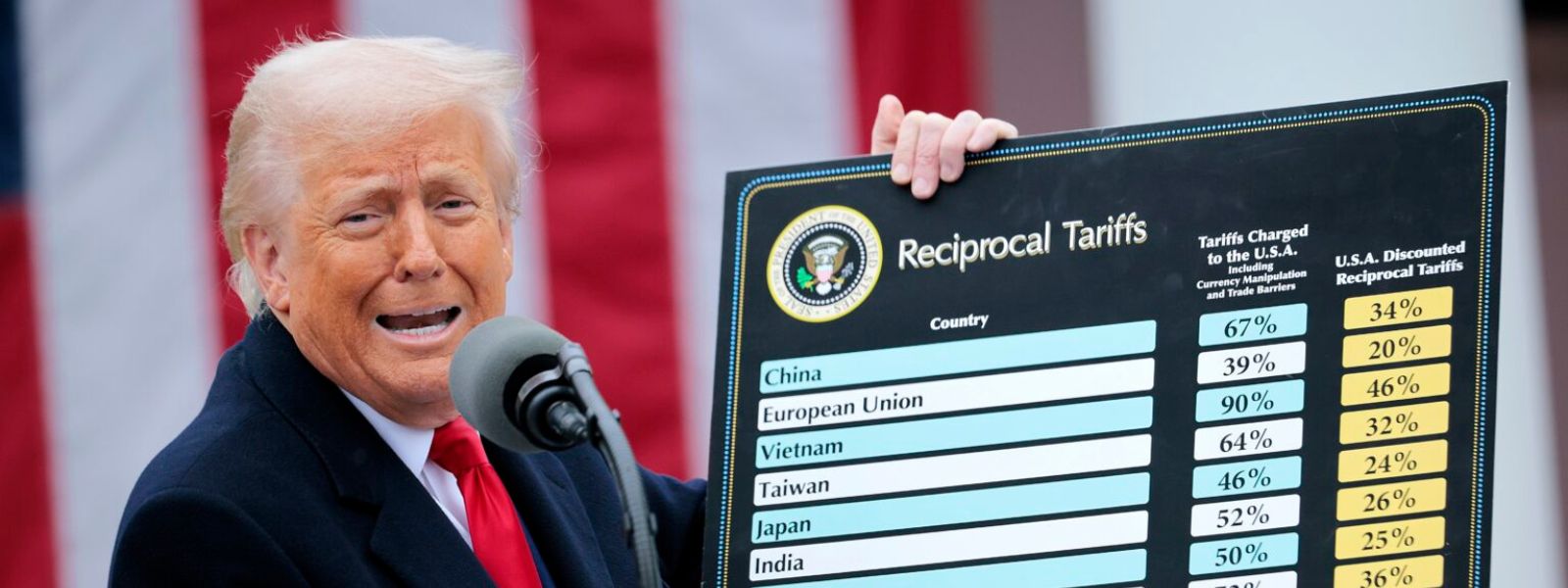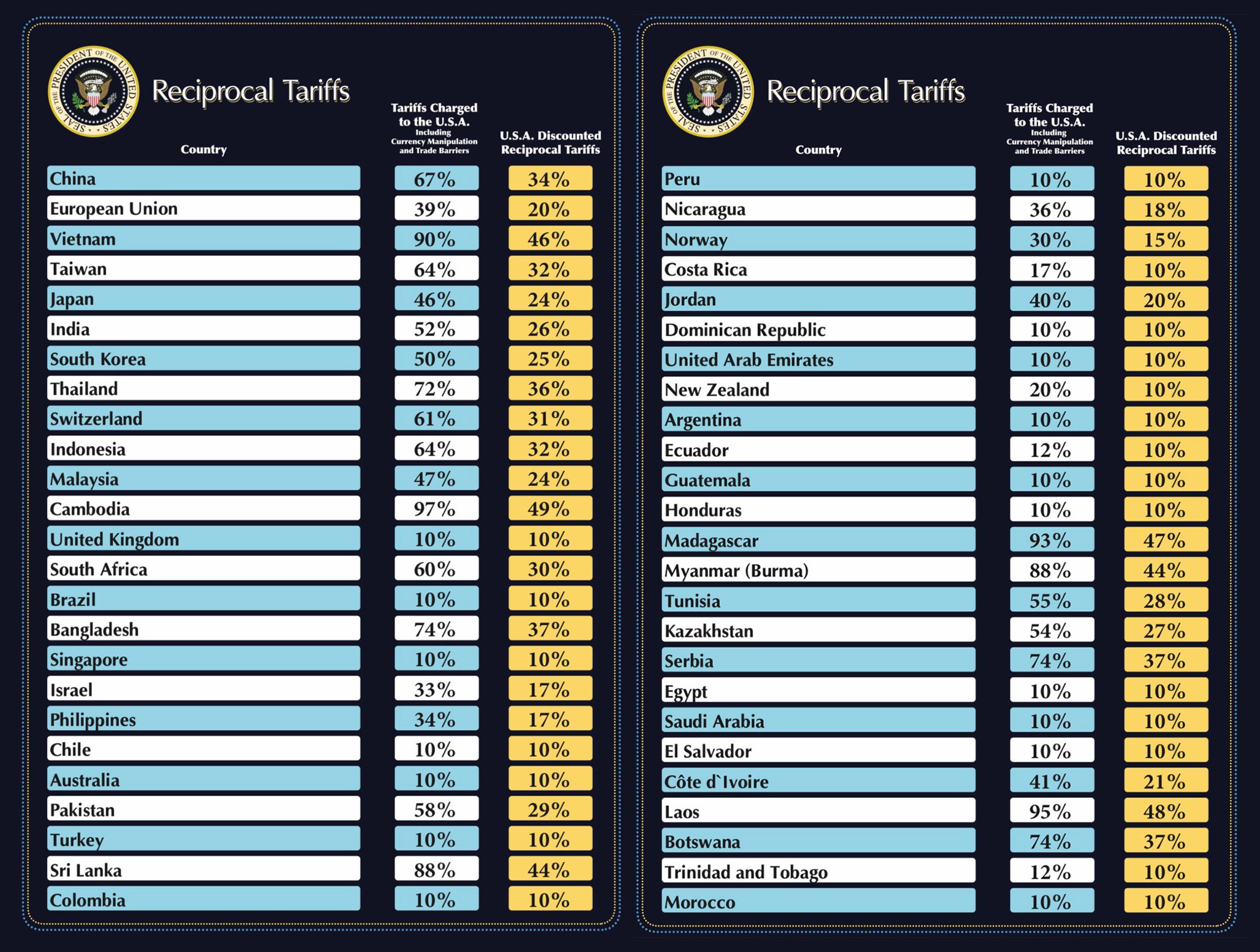.webp)

Trump Announces New Tariffs To Promote US Manufacturing; Sri Lanka Also In The List
(AP) — President Donald Trump on Wednesday announced far-reaching new tariffs on nearly all U.S. trading partners — a 34% tax on imports from China and 20% on the European Union, among others — that threaten to dismantle much of the architecture of the global economy and trigger broader trade wars.
Trump, in a Rose Garden announcement, said he was placing elevated tariff rates on dozens of nations that run meaningful trade surpluses with the United States, while imposing a 10% baseline tax on imports from all countries in response to what he called an economic emergency.
The president, who said the tariffs were designed to boost domestic manufacturing, used aggressive rhetoric to describe a global trade system that the United States helped to build after World War II, saying “our country has been looted, pillaged, raped and plundered” by other nations.
The action amounts to a historic tax hike that could push the global order to a breaking point. It kickstarts what could be a painful transition for many Americans as middle-class essentials such as housing, autos and clothing are expected to become more costly, while disrupting the alliances built to ensure peace and economic stability.
Trump said he was acting to bring in hundreds of billions in new revenue to the U.S. government and restore fairness to global trade.
“Taxpayers have been ripped off for more than 50 years,” he said. “But it is not going to happen anymore.”
Trump declared a national economic emergency to levy the tariffs. He has promised that factory jobs will return to the United States as a result of the taxes, but his policies risk a sudden economic slowdown as consumers and businesses could face sharp price hikes.
Trump was fulfilling a key campaign promise as he imposed what he called “reciprocal” tariffs on trade partners, acting without Congress under the 1977 International Emergency Powers Act. But his action Wednesday could jeopardize Trump’s voter mandate in last year’s election to combat inflation. Several Republican senators, particularly from farm and border states, have questioned the wisdom of the tariffs. U.S. stock market futures sold off sharply overnight in anticipation of the economy weakening, after having already dropped since the start of this year.
“With today’s announcement, U.S. tariffs will approach levels not seen since the Smoot-Hawley Tariff Act of 1930, which incited a global trade war and deepened the Great Depression,” said Scott Lincicome and Colin Grabow of the Cato Institute, a libertarian think tank.
The president’s higher rates would hit foreign entities that sell more goods to the United States than they buy. The administration essentially calculated its tariff rates to raise revenues equal in size to the trade imbalances with those nations. Trump then halved that rate in act that he described as “very kind.”
The White House says the tariffs and other trade imbalances led to an $1.2 trillion imbalance last year. Administration officials suggested it could take an extended set of actions by other countries to bring down the new tariffs their imports now face, and retaliatory tariffs by those countries could make the situation worse.

Other Articles
Featured News





.png )
-799520_550x300.jpg)
-799490_550x300.jpg)
-799255_550x300.jpg)


-799028_550x300.jpg)






-797273_550x300.jpg)

















.gif)